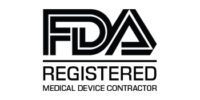
Medical devices are intricate tools, and even the slightest deviation in design or function can have significant ramifications, including risks to patient safety. Because of the stringent regulatory standards enforced by bodies like the FDA and ISO, each component of a medical device must follow the right process.
Importance of First Article Inspections
First article inspections (FAIs) are done prior to the full production run and is when one or several items are manufactured for the purpose of verifying that every aspect of the article and how it is made meets specified requirements. First article inspections are like checkpoints before full-scale manufacturing kicks off. This initial verification ensures the production process can reliably yield products meeting all specifications and standards. During an FAI, inspections are done first by the manufacturer, and assuming it is approved by the manufacturer, then the client. They identify a number of design and production criteria and record any deviations. Early identification of problems helps to prevent issues down the line, such as production halts or patient harm due to defects. If an issue is found, the a corrective action is taken and the process repeats until both the sewing manufacturer and the client sign off on it. After that the full production run can begin with confidence.
Conducting an FAI is a best practice in manufacturing that helps to identify potential issues early in the manufacturing cycle, enabling immediate corrective action. This pre-emptive approach not only prevents defects in subsequent production runs but also enhances the reliability and performance of medical devices. Learning how the FAI process works is and its importance in medical device manufacturing will enhance the safety and efficiency of these products.
Key Inspection Points in Medical Device Manufacturing
During an FAI it is important to verify that all parts and components adhere to the dimensional requirements outlined in the design specifications. This step is critical for ensuring that components function as intended. The materials are also examined to make sure that the correct raw materials are used in manufacturing the product. Verification that they meet all applicable quality standards and regulatory requirements is also done. Given the strict biocompatibility standards in the medical device industry, this inspection is mandatory. Both the manufacturer and the client will do these inspections.
Process Validation FAI
This FAI in medical device manufacturing is important because it involves verifying whether the manufacturing process can consistently produce products that meet all quality criteria. Elements like machine settings and cycle times must pass the test to ensure consistent outputs. Validation is crucial for maintaining process controls that minimize the risks of producing non-conforming medical devices. In addition to consistency, the manufacturer will also evaluate issues relating to manufacturing efficiency. Is the current manufacturing process the most efficient method? Is this method taking longer than estimated. By evaluating efficiency this helps ensures that when the final production run begins production deadlines are able to be easily maintained.
Functional Testing FAI
Clients should also do functional testing during the FAI process. This evaluates the operational capabilities of a device under specified conditions. These tests simulate real-world scenarios to ensure the device performs as intended. These inspections are vital for ensuring product efficacy and identifying potential points of failure that could compromise patient safety.
Documentation and Compliance FAI
Comprehensive record-keeping is essential for medical device manufacturing. This phase ensures all necessary documentation, including design history files, device master records, and test reports, are complete and compliant with regulatory standards. Proper documentation facilitates traceability, aids in regulatory audits, and provides a historical record that can be invaluable during the lifecycle of a medical device.
First article inspections play a vital role in maintaining the integrity and reliability of medical products. Reliable sewing contractors for soft-good manufacturing must pay attention to detail in FAIs to lay the groundwork for success in this industry. By prioritizing these inspections, manufacturers can guarantee the safety and efficacy of their medical devices while fostering trust and reliability in the healthcare market.











